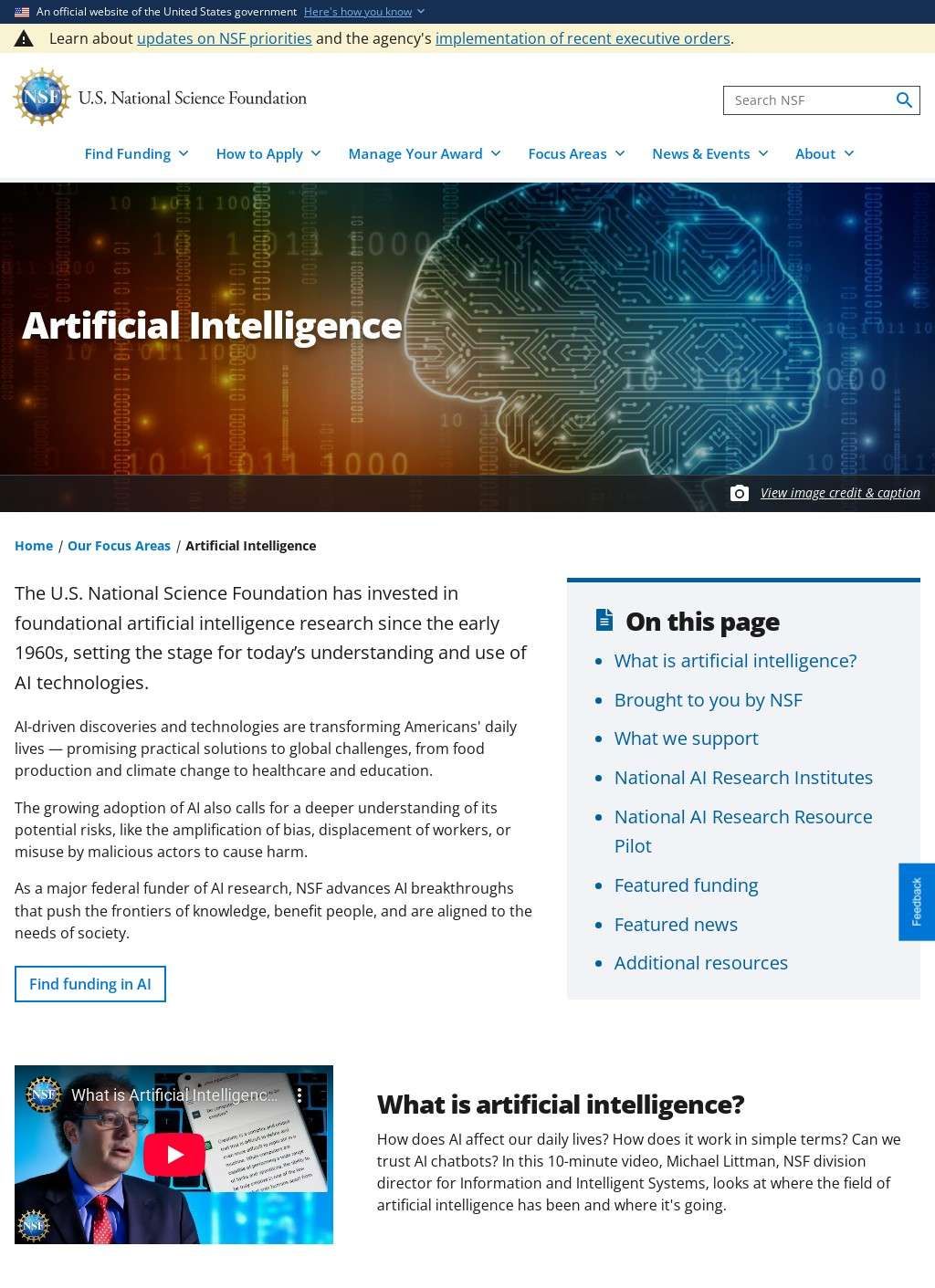The National Science Foundation stands as America's cornerstone institution for artificial intelligence research funding and development. Since the early 1960s, NSF has channeled billions of dollars into foundational AI research, essentially creating the infrastructure that makes today's AI revolution possible. The agency doesn't just write checks—it actively shapes the AI landscape through strategic initiatives that balance innovation with responsibility.
What makes NSF unique in the AI ecosystem? They're not chasing the latest chatbot trends or trying to build the next social media algorithm. Instead, they focus on the unglamorous but crucial work of basic research—the kind that might not pay off for decades but eventually transforms entire industries. Their portfolio spans everything from theoretical machine learning frameworks to practical applications in healthcare, agriculture, and climate science. They've funded the early work behind reinforcement learning (yes, the same tech that powers self-driving cars), neural networks, and those large language models everyone's talking about.
The agency operates through multiple funding mechanisms, each targeting different aspects of AI development. Their Computer and Information Science and Engineering program pumps money into core AI research, while specialized initiatives like Smart and Connected Communities explore how AI can solve real-world urban problems. They're particularly interested in what they call "trustworthy AI"—systems that don't just work well but work ethically, transparently, and in ways that protect privacy. This isn't just lip service; they're backing it up with serious cash and concrete requirements for funded projects.
One of NSF's most ambitious projects is the National AI Research Institutes program, launched in 2020. With 25 institutes now operational, this network connects over 500 institutions worldwide. Each institute tackles a specific AI challenge—from improving cybersecurity to revolutionizing education. The University of Maryland leads TRAILS, focusing on making AI more trustworthy for marginalized communities. Carnegie Mellon runs an institute dedicated to AI-driven disaster response. These aren't isolated academic exercises; they're designed to produce real solutions that can be deployed in communities across America.
The NAIRR Pilot (National Artificial Intelligence Research Resource) represents NSF's answer to a critical problem: AI research is becoming a rich institution's game. Top-tier universities and tech giants have the computational power and data resources to push boundaries, while smaller schools and independent researchers get left behind. NAIRR aims to democratize access by providing shared infrastructure—think of it as a public library, but for AI development. Researchers can access supercomputing resources, massive datasets, and specialized tools without needing Silicon Valley's budget.
Contact information appears straightforward on their website, with program-specific emails and phone numbers for different initiatives. The AI Institutes Program Team can be reached at AIInstitutesProgram@nsf.gov or by calling (703) 292-5111. Each funding opportunity lists its own program officers with direct contact details. They maintain standard government office hours and typically respond to inquiries within federal guidelines—though grant applicants know that "typical" can mean weeks during busy seasons. The website provides extensive documentation, FAQs, and even recorded webinars for those navigating the funding process.
